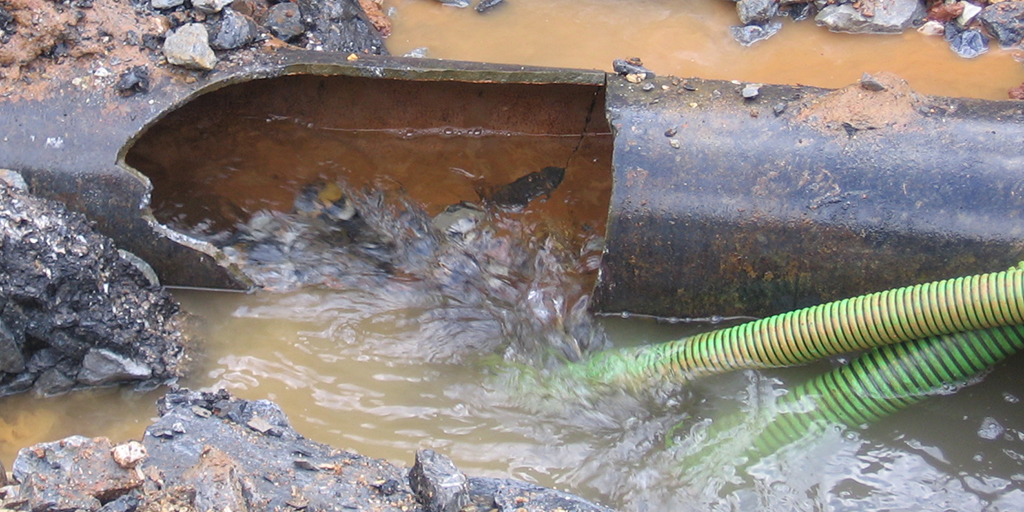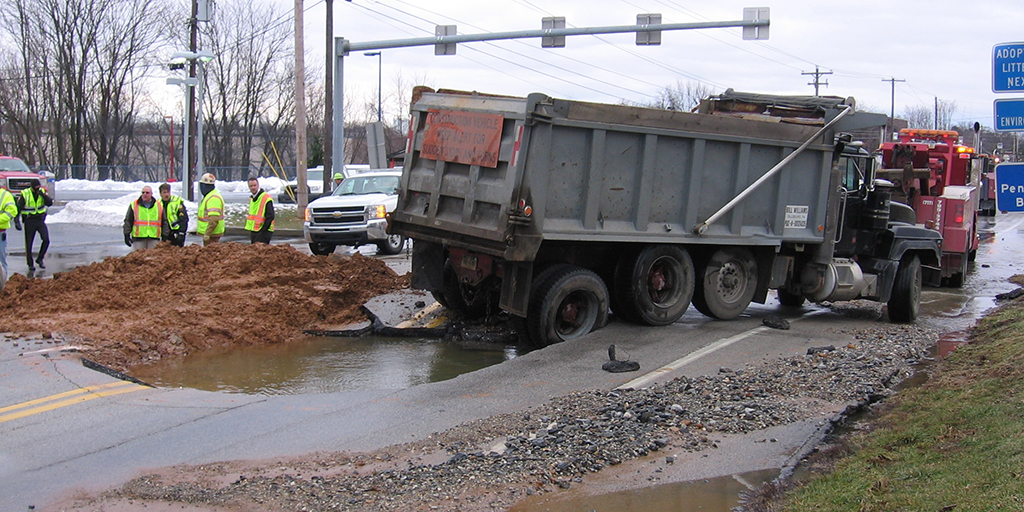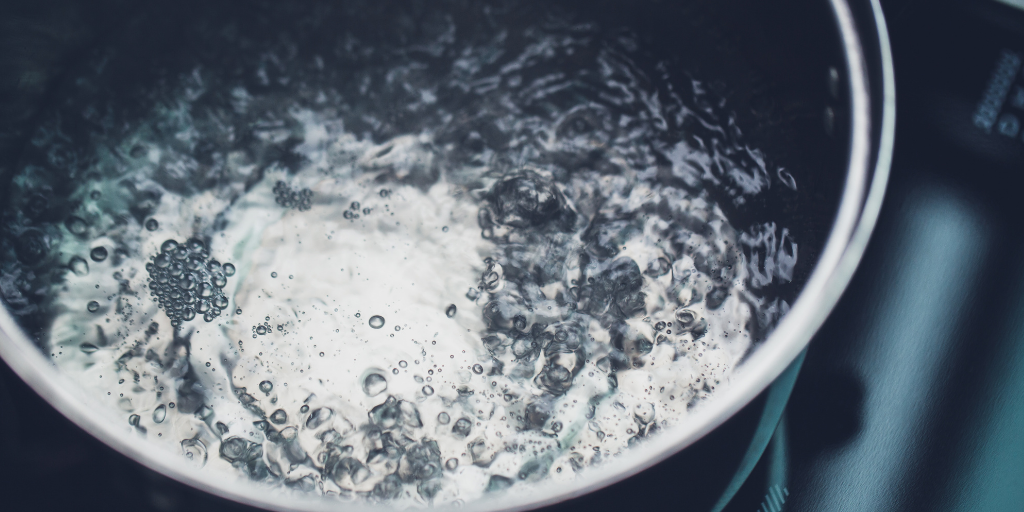When temperatures drop, so can the strength of water mains. A water main is an underground pipe that supplies water to residences and businesses. When temperatures above ground drop below freezing or during periods of extreme temperature fluctuations, the pipe below can burst from the stress. While water main breaks can happen any time of year, areas like Pennsylvania that experience frigid temperatures are likely to experience water main breaks more often in late fall, winter, and early spring. And areas with older water infrastructure are at a higher risk of line breaks.

If a water main break occurs nearby, you may notice:
- Running water on streets or flooding in your neighborhood
- Discoloration in your water
- Low water pressure
- Interrupted water service if crews are in your area to fix the broken water main
Pedestrians and drivers also need to exercise caution around a water main break. Floodwaters from the break can solidify into ice on streets and sidewalks if ground temperatures and outdoor temperatures are cold enough.

If a water main break occurs in your area, keep these tips in mind until the main is repaired:
- Reach out to your water supplier immediately to report the break.
- Try to stay clear of the roadway or sidewalk where the break occurred.
- Minimize your water usage. This includes appliances that are connected to a water line such as a washing machine, or a refrigerator with an ice and water dispenser. A break usually means there’s a hole somewhere in the pipe, making it easy for stones and dirt surrounding the pipe to enter your plumbing.
- Use stored bottled water for cooking or drinking. If you don’t have stored bottled water, you may be instructed to boil your tap water before using it.
The Pennsylvania Department of Environmental Protection (DEP) oversees 8,500 public water systems across the commonwealth and enforces regulations to safeguard public health. Water suppliers are responsible for proper treatment and delivery of safe drinking water to their customers and must notify DEP if the quality or quantity of the drinking water they provide is compromised or at high risk of contamination.
When functioning normally, water systems leak outward under pressure. But in some cases when mains break, the system can lose positive pressure which can cause untreated water to flow into other parts of the drinking water distribution system. In this situation, the water supplier would issue a boil water advisory.

DEP often asks the supplier to pinpoint the affected area of their system when issuing boil water advisories to minimize the disruption and inconvenience to consumers, but boiling the water is important because it safeguards consumers by killing any waterborne diseases, contaminants, and pathogens that may be in the untreated water that has made its way to consumer’s taps. Boiling water used for food washing and preparation, cooking, drinking, dishwashing, making ice, giving to pets, and even brushing your teeth should continue until the advisory is lifted by the water supplier. Not all water main breaks will pose a need for a boil water advisory, but when one is issued consumers should take it seriously.
Each public water system is required to follow the public notification requirements regulated by DEP, and the federal Environmental Protection Agency (EPA) if there’s any event where drinking water could become contaminated. This might mean that you’ll get an email, automated phone call, or note at your door if you could be impacted by a by a public water supplier violation or potential adverse health situation.
You will also be notified by the water supplier once the problem has been fixed and the advisory is lifted. After the water main is repaired or replaced, run the water at the lowest point of your home on cold for a few minutes to flush your pipes of sediment that may have made it into your plumbing during the break. If the problem persists, repeat the process or call your local water supplier.
We don’t often think of the pipes underground or all the measures necessary to bring us safe drinking water. But when problems arise, required precautions and safety measures kick in. The regulations that DEP and EPA have in place requiring proper treatment and disinfection prevent waterborne diseases, contaminants, and pathogens (such as E.coli and giardia) from getting into public water systems and builds in safeguards (like boil water advisories) in the event of a breakdown. These regulations help consumers – even those with compromised immune systems – know and trust that their drinking water is safe and won’t make them sick.